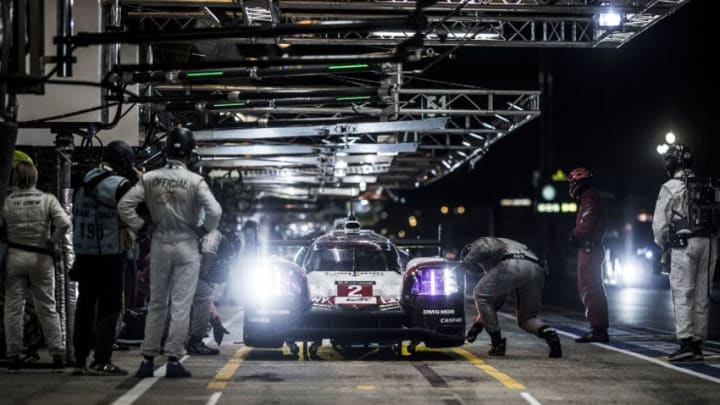Formula E has been in the news a lot of late, with positive momentum on the engine front. But is it coming too much at the expense of other series?
More from Formula E
- 5 ways the McLaren Formula 1, IndyCar situations could play out
- Formula E champion responds to comical social media mix-up
- NASCAR not the only series with devastating sim consequences
- Formula E: 5 things we learned upon return in Saudi Arabia
- Change to Beyond the Flag power rankings for 2020
After an exciting championship that ended with Lucas Di Grassi finally claiming his first Formula E championship, the all-electric series is on top of the world. They have their third different series champion in the third season that the division has competed, and now have fresh cash being thrown in by many manufacturers. Mercedes and Porsche are the latest names to join the FE ranks, but it comes with a big asterisk for the rest of the racing world.
The world knows that mankind cannot continue to rely on fossil fuels, hence the hard push for electric vehicles. Now, that push has spilled over into the racing ranks, and it is having profound implications on active championships around the globe. The two most impacted so far, Germany’s DTM Series and the World Endurance Championship, will look significantly different in the next two years if they are to survive.
When Mercedes announced their intention to join Formula E by the end of this decade, it came with the end of their DTM program after 2018. And while for some series the loss of one manufacturer is a recoverable issue, this could be deadly for DTM. Mercedes fields six of the eighteen current cars on the grid. That would only leave Audi and BMW fielding six a piece starting in two years. Is that enough to justify DTM’s existence?
Meanwhile, in the World Endurance Championship, the LMP1 class could completely vanish by the end of 2017. First, Audi departed the series at the end of 2016, citing direct competition with corporate sibling Porsche and the Volkswagen AG emissions scandal. Now, one year later, their friends at Porsche announces their move to Formula E in 2019-2020, departing the WEC at season’s end. This leaves only Toyota with an LMP1 program, but they could make a move out considering they are the last ones standing.
What about other future manufacturers for the all-electric championship? If another OEM tries to jump into Formula E, it may also come as part of an exit from another area of racing. Toyota, for example, could shut down their World Rally Championship effort in a move to FE. In the same vein, Honda could theoretically jump from F1 to FE. In a sport where money is king and costs are ever-soaring, there just is not enough funding to go around to every championship.
Next: Can the Formula E Privateer Teams Survive?
Are you sad to see Mercedes and Porsche exit endurance racing for Formula E? Or are you more excited to see them join the all-electric championship? Keep checking in with Beyond The Flag for the latest news, rumors, and analysis from Formula E and beyond.
